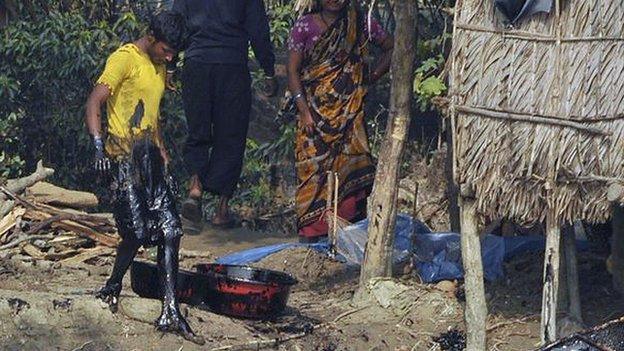20,000-tonne oil spill in Arctic Circle
- Published
- comments
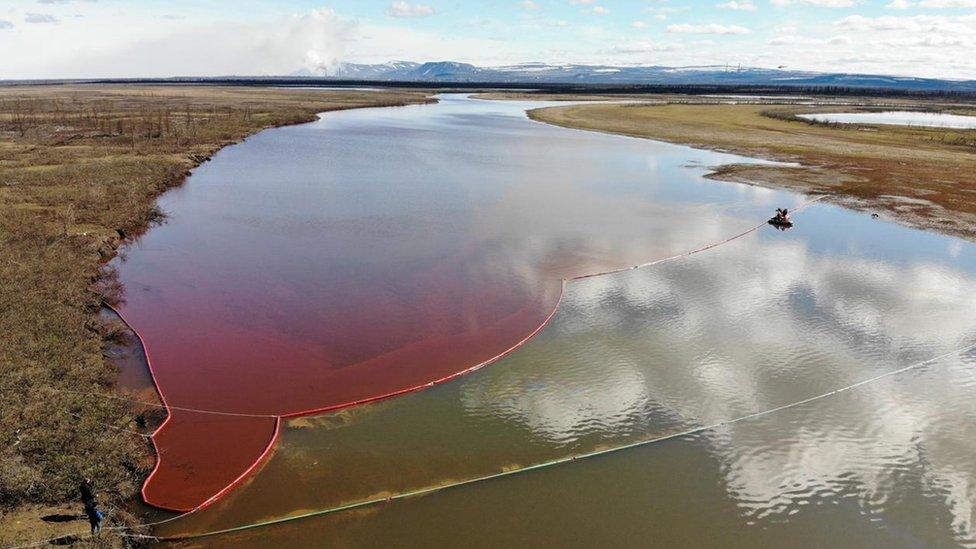
The leaked diesel oil drifted some 12km (7.5 miles) from the site of the accident
A state of emergency has been declared by Russia's president after 20,000 tonnes of oil leaked into a river within the Arctic Circle.
The spillage happened when a fuel tank at a power plant near the Siberian city of Norilsk collapsed on Friday 29 May.
It took two days for government officials to find out, and they only realised what had happened after photos were shared on social media.
Russia's President, Vladimir Putin, has expressed anger at the incident not being reported sooner and has ordered an investigation into it.
The plant is owned by a subsidiary of Norilsk Nickel - the world's leading nickel and palladium producer.
In a statement, Norilsk Nickel said the incident had been reported in a "timely and proper" way.
It added that the fuel tank was damaged when supporting pillars that had "held it in place for 30 years without difficulty" began to sink. The plant is built on permafrost so can be affected by melting ice caused by climate change.
Oil spillages are often very bad for the environment. They can cause harm to wildlife for years after they have happened and tend to be very difficult to clean up.
The process for cleaning up oil spills can cause as much damage as the original spillage.
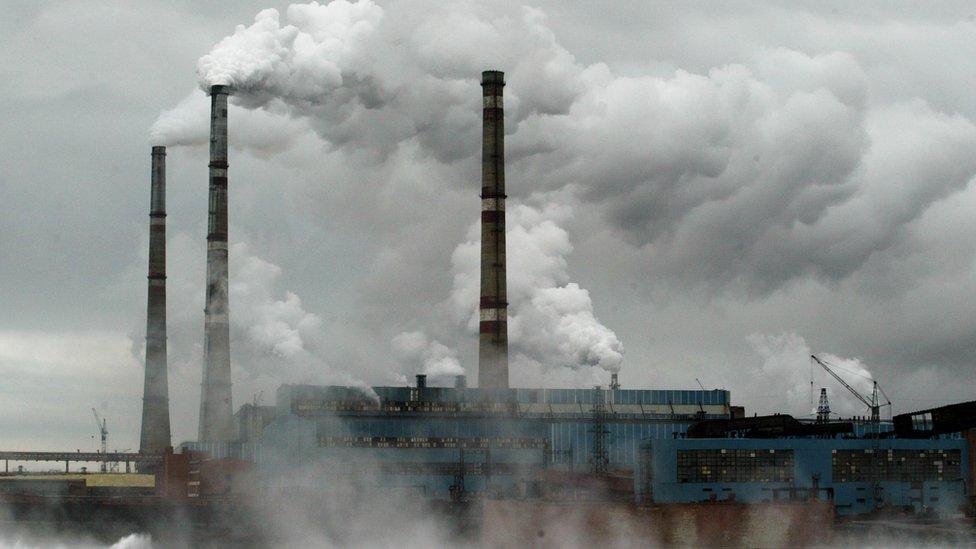
Norilsk is considered to be one of the most polluted cities in the world
This isn't the first time Norilsk Nickel has been involved in oil spillages. In 2016, it admitted that an accident at one of its plants was responsible for turning a nearby river red.
By declaring a state of emergency, this means extra forces will be sent to the area to assist with the clean-up operation.
World Wildlife Fund expert Alexei Knizhnikov says the accident is the second largest in modern Russian history in terms of volume.
The Russian branch of Greenpeace has told state news agency RIA Novosti that the clean-up will take over 10 years, and the local ecosystem is unlikely to recover.
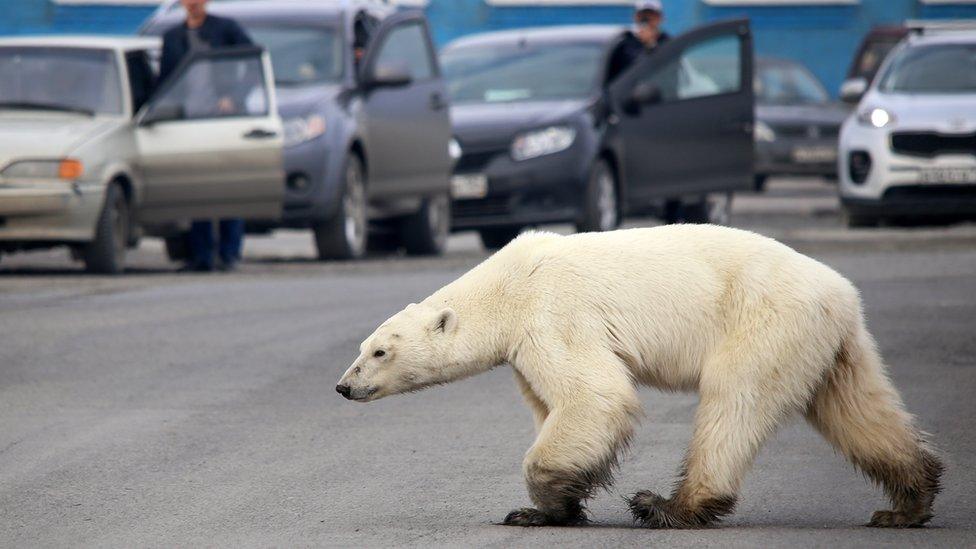
A polar bear wanders through the city of Norilsk, which is part of the Arctic Circle
Some have suggested that the fuel should be burned away.
Environment Minister Dmitry Kobylkin said that this would be too risky though.
"It's a very difficult situation. I can't imagine burning so much fuel in an Arctic territory... such a huge bonfire over such an area will be a big problem."
If you cannot see the interactive activity on this page, click here.
- Published24 April 2020
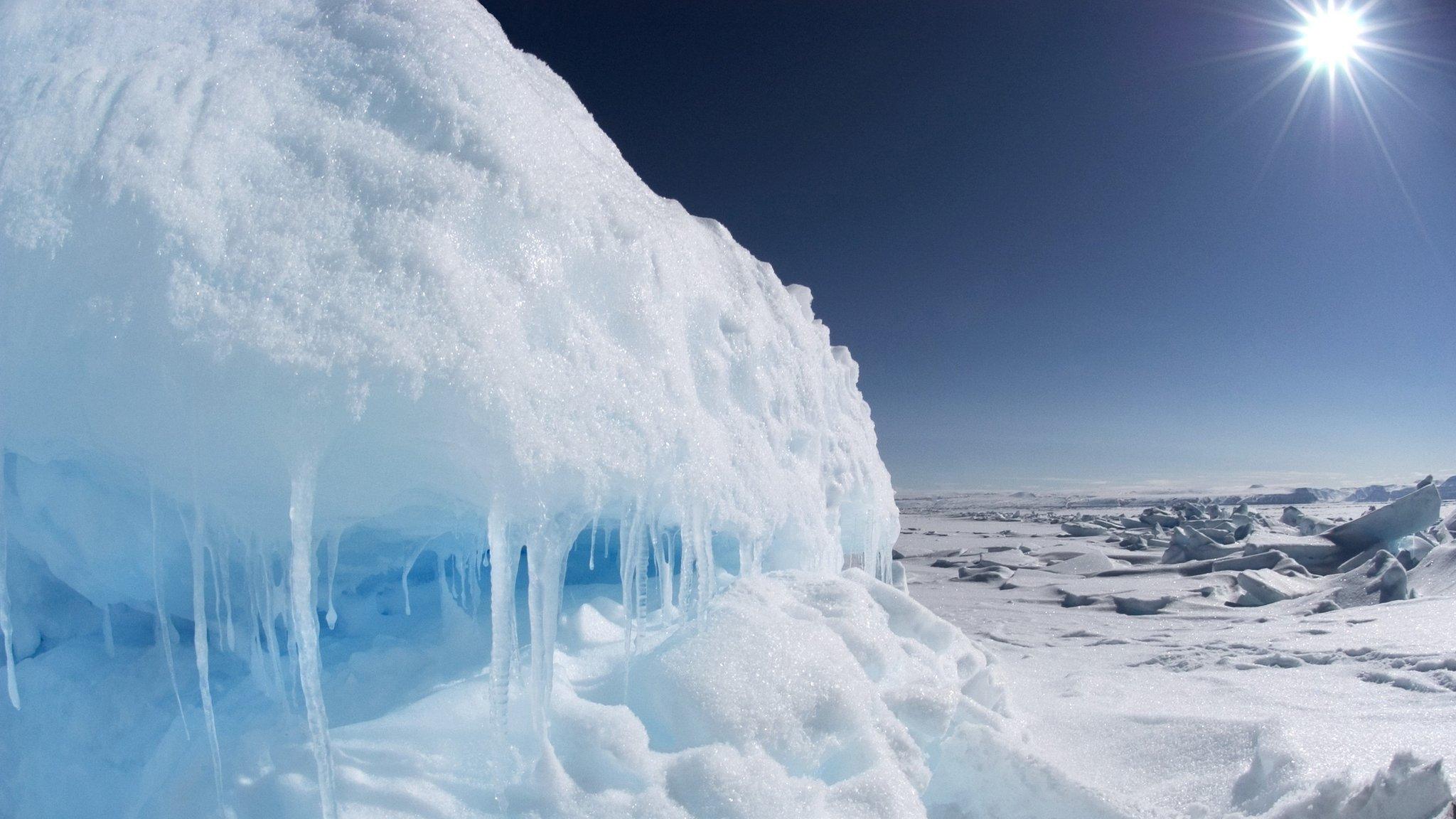
- Published24 October 2019
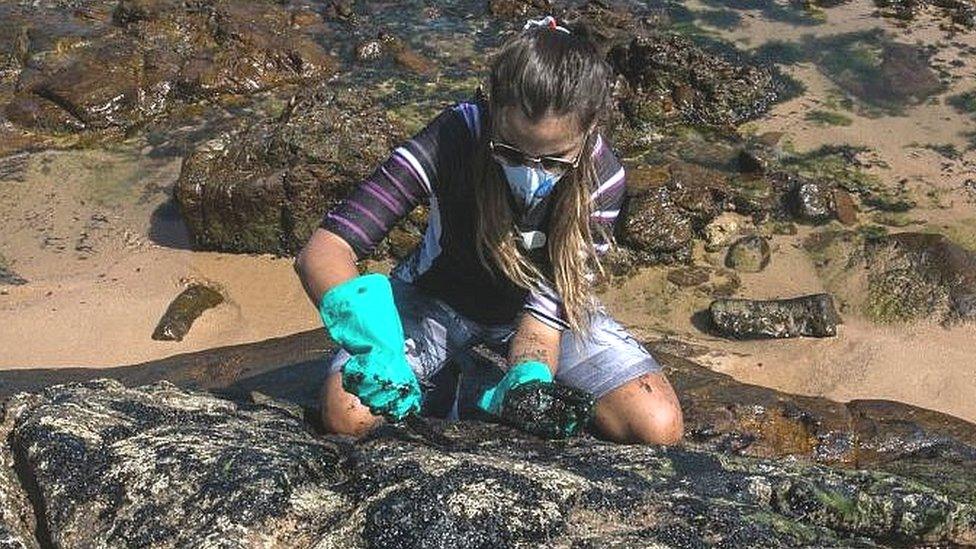
- Published12 December 2014
